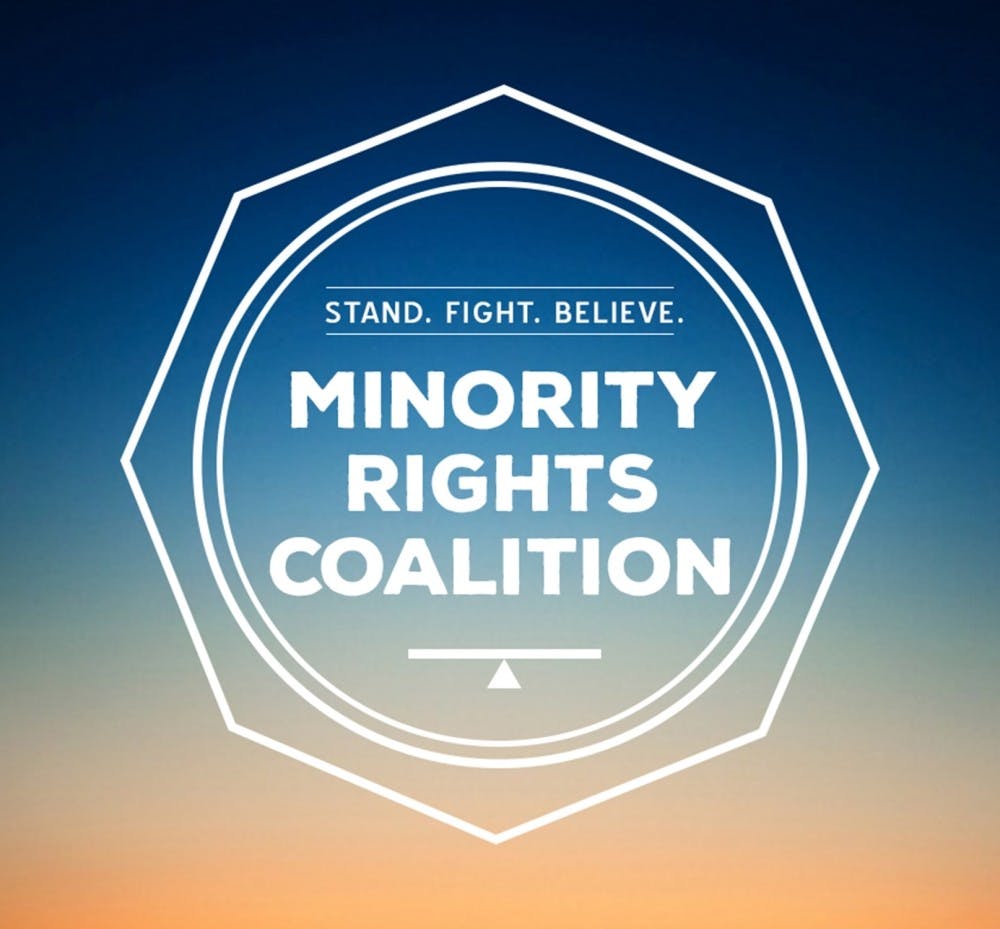The University has long needed a more engaged network of allies for its minority and marginalized communities. Last year, more allies should have attended the Queer Student Union’s February march to support transgender rights. More allies should have written messages of support on the Eliminate the Hate campaign’s “Love Speech” walls, and this year, more allies should attend the UndocuAlly Trainings hosted by DREAMers on Grounds. The fact that white supremacists returned to Charlottesville on Oct. 7 only makes this need more obvious. No, we shouldn’t be surprised at the presence of hateful ideologies in our community. But that hatred’s growing confidence should prompt every student to commit more seriously to the pursuit of justice at the University and in Charlottesville, especially if they’ve considered themselves allies before.
In the Minority Rights Coalition’s “Unpacking Privilege” training program, we define allyship as committed support for a marginalized community with which one doesn’t personally identify. Rather than taking charge of minority advocacy efforts, allies play a supporting role –– present to amplify and endorse minority voices. Allies are critical for the success of minority advocacy. This is not to suggest that minority communities need their hands held by majority-identifying students. But particularly at a University that continues to struggle with the homogeneity of its student body, allies exponentially increase the impact and resonance of student resistance efforts. Recently, The Cavalier Daily’s Benjamin Burke argued that the notion of allyship creates unnecessary division between minority and majority-identifying communities. Burke’s argument, however, misses the point of minority advocacy and thereby fails to discredit the idea of allyship. Activists are not working for a world where one’s identities don’t matter. Activists are working for a world where we can respect and acknowledge difference without rigging the system in favor of some identities, and against others.
In “Unpacking Privilege” we also discuss privilege –– the special rights or opportunities available to individuals according to their identities. If you’ve never before been horrified by injustice at this University, that’s a privilege. Plenty of students do not have the ability to ignore Islamophobia on Grounds or threats to AccessUVA. But there’s no way to ignore torch-bearing terrorists traipsing through Charlottesville. And that means there’s no way to ignore the need for change –– systemic, yes, but also personal. Charlottesville’s recent violence forces every student to feel the heft of their reactive inertia –– we must change our behavior in some way so as to translate our horror into meaningful progress.
We must all be better allies, and there are many ways to change our behavior for the better. The first type of allyship is participation in direct action. Protests play a critical role in galvanizing our community to think critically about its failings. In the past, allies have been needed to Occupy the Rotunda to resist hate speech and to protest the Trump administration’s Muslim travel ban. More recently, allies have been needed to show solidarity with athletes like Colin Kaepernick at Scott Stadium and to support the efforts of groups like U.Va. Students United. Students can be informed about many opportunities for direct action by liking minority and activist organization Facebook pages or joining multicultural listservs.
As I’ve written previously, however, direct action is not the only form of resistance. A second type of allyship involves education and attendance. Whether you’re able to participate in protests or not, find sensitivity trainings like Safe Space, Green Dot, UndocuAlly or Unpacking Privilege to attend. Support educational initiatives like the Latinx Student Alliance’s Follow the X campaign or the Muslim Students Association’s Islam Awareness Month events. Go to the general body meetings of Feminism is for Everyone or the Queer Student Union. Developing empathy and understanding for the lived experiences of those different from you plays a powerful role in preparing our community for larger, more systemic change in future.
Other forms of allyship fall somewhere between the spectrum ranging from personal development to direct action. You can participate in discussions of how to bring the University community closer together, make phone calls for socioeconomic diversity or work outside the system of student groups and CIOs. You can support Charlottesville community groups such as Cville Pride or Showing Up for Racial Justice.
The bottom line is this –– add one new habit to your routine that responds in some way to the increasingly-evident evils around us. And then, of course, begin to incorporate more and more various forms of allyship. But start wherever you need to, because the most important thing is being better now about minority allyship than we’ve been before. Marginalized communities need allies to make meaningful change. And with Nazis on our doorstep, there is no excuse for stasis.
Jack Chellman is a Viewpoint writer for the Cavalier Daily. He may be reached at opinion@cavalierdaily.com.







